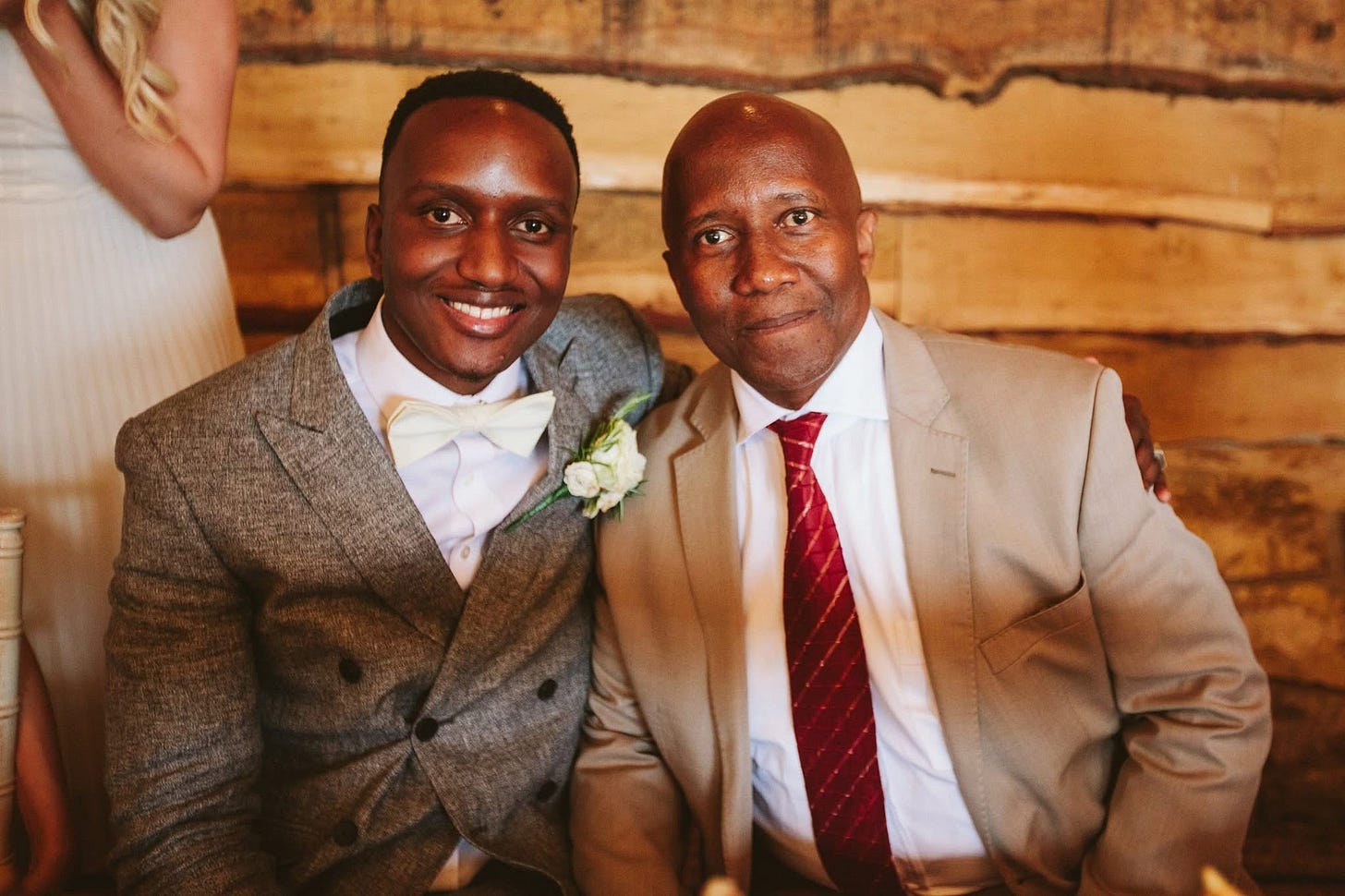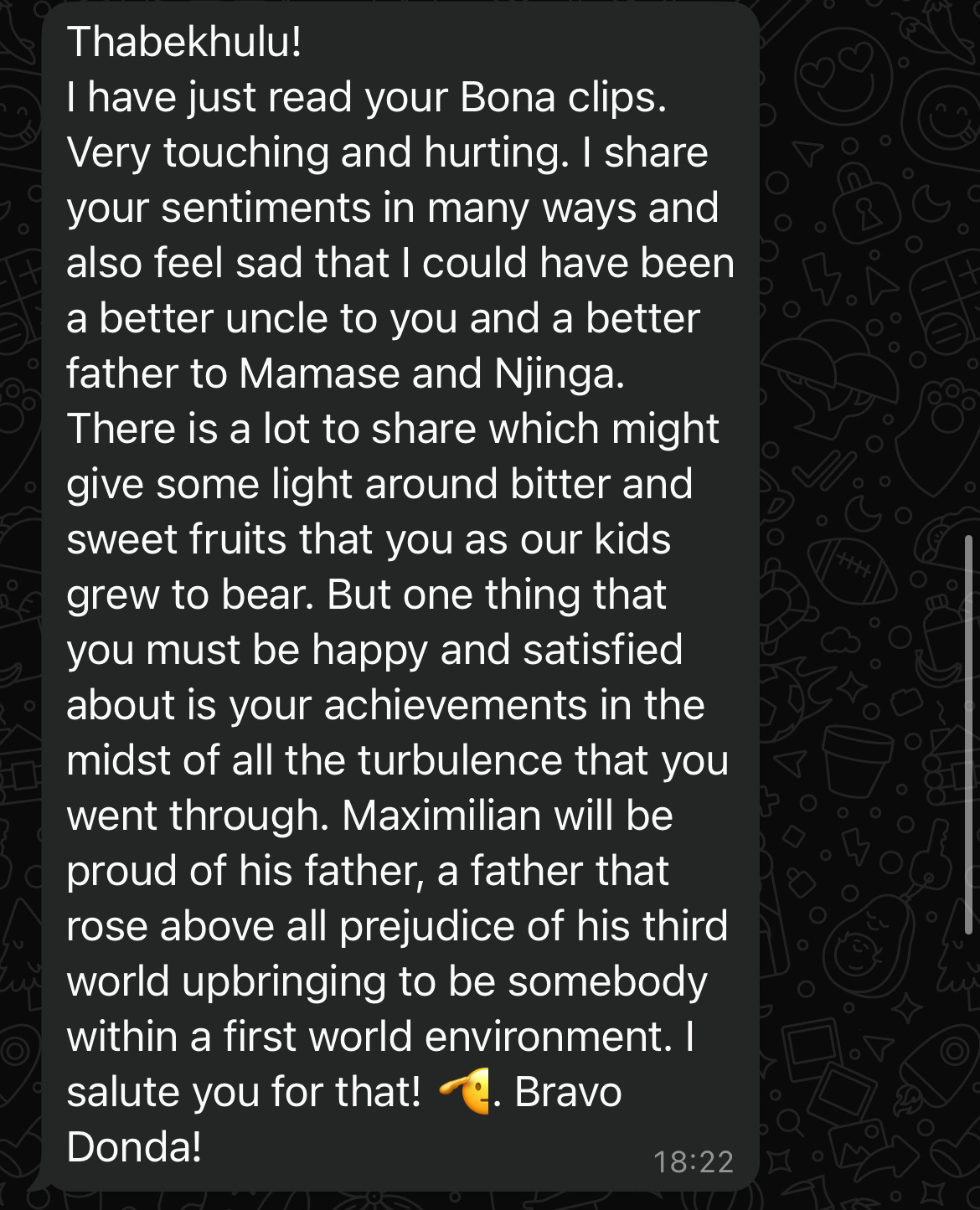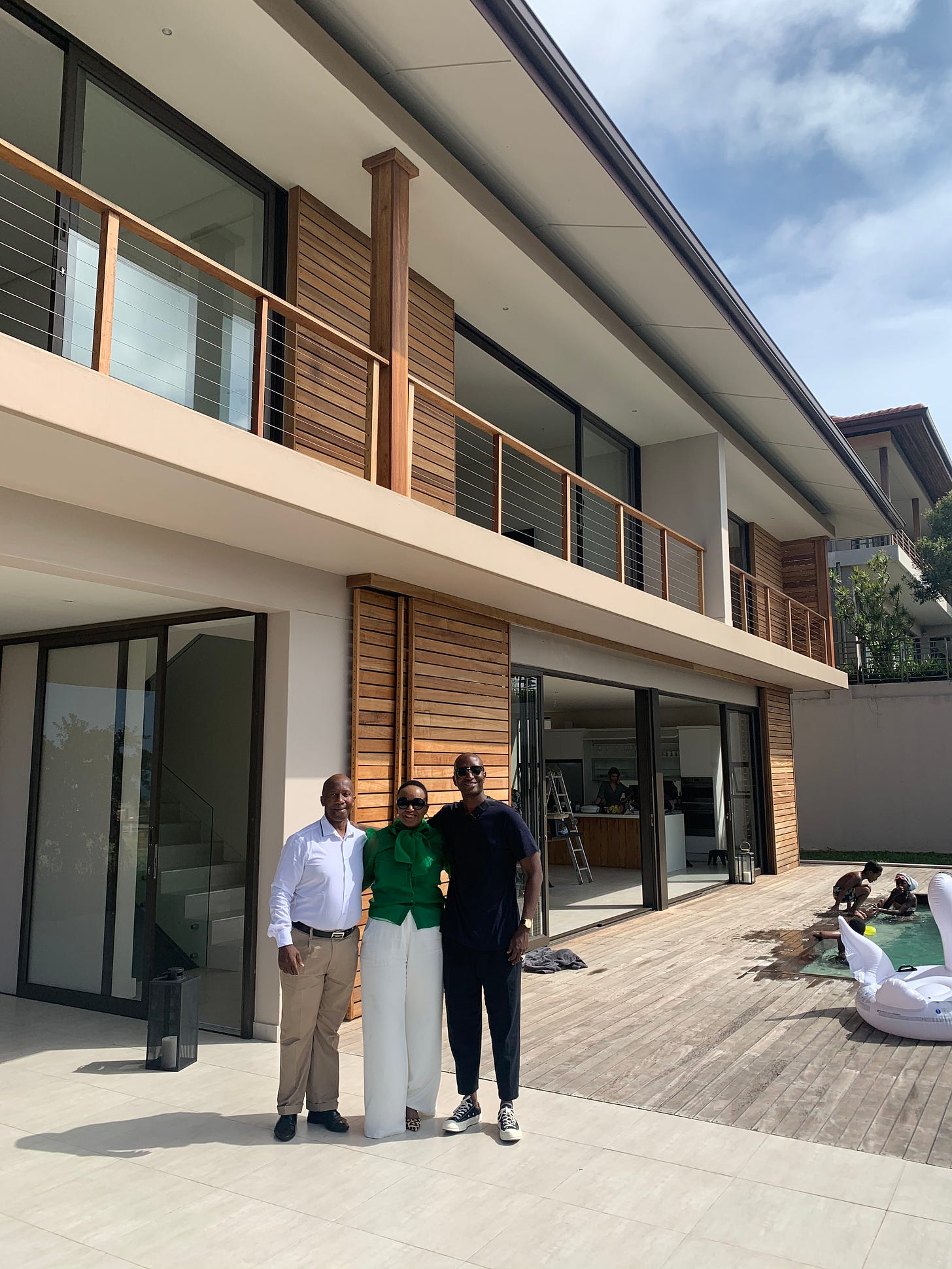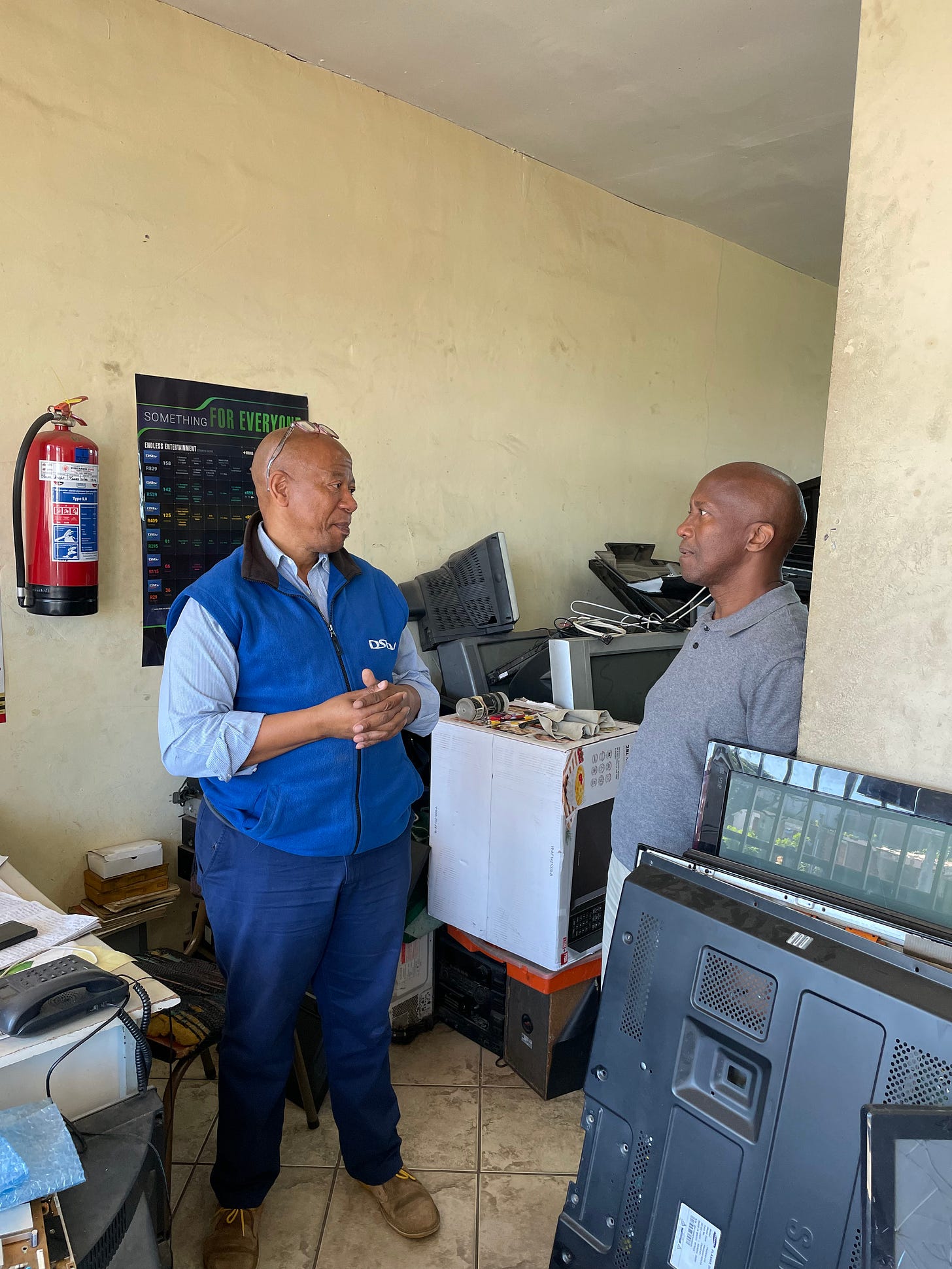BONA, derived from the Zulu greeting to a multitude of people, 'Sanibona' - directly translated as 'we see you' - forms the premise of this publication, by Tebo Mpanza
When I started this Substack, I didn’t anticipate the ways it would intersect with my life — the memories it would stir or the conversations it would spark. But last week, my uncle (Malume in isiZulu), Malusi, sent me a text that stopped me in my tracks:
"Thabekhulu (One of our family’s clan/praise names — this is how we address each other now that I have come of age), I have just read your BONA clips. Very touching and hurting. I share your sentiments in many ways and also feel sad that I could have been a better uncle to you and a better father to Mamase and Njinga. There is a lot to share which might give some light around bitter and sweet fruits that you as our kids grew to bear. But one thing that you must be happy and satisfied about is your achievements in the midst of all the turbulence that you went through. Maximilian will be proud of his father, a father that rose above all prejudice of his third world upbringing to be somebody within a first world environment. I salute you for that! Bravo, Donda (another clan/praise name — not Kanye West’s mom)!”
Reading those words moved me. It wasn’t just the affirmation — though that meant a lot — it was the vulnerability, rare in African men. The willingness to look back, acknowledge what wasn’t perfect, and still celebrate what was. It reminded me why I started asking the hard questions in the first place.
For a while now, my uncle and I have been having conversations like this. Ever since I decided I wanted answers — not for the sake of blame, but for understanding. I mean, do you even know why you’re short-tempered, hold grudges, or always late? Why you play it safe, ghost people, or never say, ‘I’m sorry’? Why you struggle with friendships, avoid risks, or feel stuck financially? Why you’re cold sometimes, just anti, or never have people round for dinner? Why you’re sometimes rude to people (maybe you’re not aware that you might be) or why you might look down on others? Why you never try new things, move out of your hometown, or challenge the absolutes you’ve inherited? As a father now, raising a son of my own, I want clarity. I want answers for Maximilian’s questions.
Malume and I on my wedding day back in 2016
I want to know what was happening when I was born, before I was born. What were my grandparents like? What relationships did my parents have with them? Why were there so many broken marriages in our family? What did that mean for us, the next generation and how we approach relationships? And how can we do better for our kids?
These aren’t questions we’re used to asking in my family. They aren’t questions we’re used to answering either. But my Malume answers them — graciously, humbly, with a depth of reflection that has made me see him in a new light. He is breaking the silence, and that takes courage. I respect him even more for that. And the answers to these questions are fundamental because they have played a part in shaping me.
I spoke to him at Christmas, and our conversation stayed with me. Over an hour on WhatsApp video (as long as the airtime, data, and power allowed on his end in Durban with load shedding), we went back and forth about his observations. He talked about how far our family had drifted from the foundation of faith my grandmother — his mother — had laid. “Live holy lives,” she would always say. He didn’t understand what she meant then, but he does now.
He shared how hard it is to change when people only see you for who you’ve been, not who you’re becoming. I think about that a lot. How much harder it is to rewrite your story when those around you only remind you of its worst chapters?
“I could have been a better uncle to you.” The truth is, he couldn’t have done more. He was the best male figure I had up close in my formative years, a crucial time. He did the best he could with the cards he was dealt — they all did. He taught us the importance of education and hard work. He gave us a glimpse of what could be possible in a society that didn’t make it easy for people like us.
I gave my son his name, Malusi, which means “Shepherd” or “Guardian of the family wealth.” I prefer the latter. Now, I just need to figure out the “family wealth” part — or maybe not, and that’s fine too.
Twenty years ago, I couldn’t have had these conversations with him — or anyone in my family. I wouldn’t have known how to ask. I wouldn’t have had the courage. But now, I’m learning that questions are a way of honouring the past and shaping the future.
Not every family is ready for these conversations. Not every family member will want to have them. But sometimes, asking the question is enough to break a generational cycle of silence.













So good! Love the “…not for the sake of blame, but for understanding” part. Questions are so important!
So beautiful